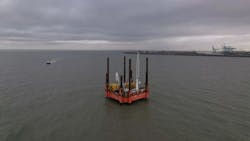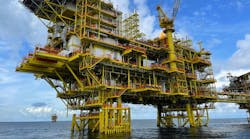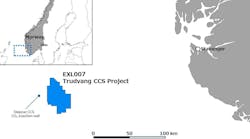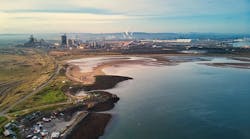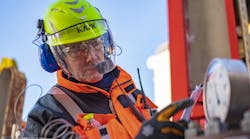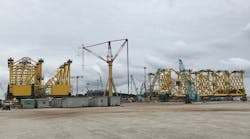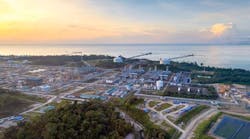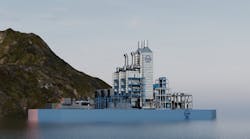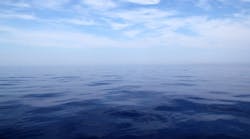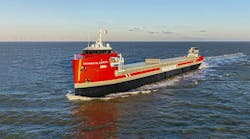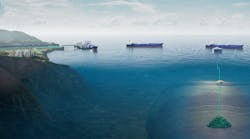Fugro is conducting shallow-water site investigations offshore Belgium for Equinor’s CO2 highway project.
The planned 1,000-km pipeline would transport CO2 collected from industrial emitters in mainland northwest Europe to Norway for subsurface storage in the North Sea.
Equinor aims to bring the development onstream in 2030. Fugro is acquiring data to help the company assess seabed soil risk and reduce planning uncertainty.
Fugro’s team is operating from the company’s WaveWalker jackup barge at the near-coast location in Zeebrugge. The jackup is designed to operate in variable winter conditions. Having the legs fixed to the seabed leads to improved safety and operational efficiency, Fugro claims, with no need for crew changes as the team can live onboard.
Prior to starting investigations, the company undertook a search for unexploded ordnance to ensure safe deployment of the WaveWalker.
The full work scope includes geotechnical borehole drilling, sampling and downhole cone penetration tests (CPTs). Equinor will use the results for development of the landfall and deep pipeline burial beneath the Scheur ship channel to support safe installation of the CO2 pipeline.
Earlier this year, Fugro completed a marine geotechnical campaign that involved deploying the Fugro Galaxy for CPT and Vibrocore sampling along the CO2 highway route, with the Fugro Meridian then completing investigations for the deepwater sections.
The CO2 pipeline would originate next to CO2 hubs in Zeebrugge and Dunkirk, northern France, connecting to storage wells on the Norwegian Continental Shelf.
